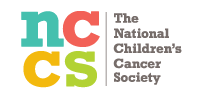The Complexities of Cancer Late Effects Examined in New NCCS White Paper


St. Louis, Missouri (PRWEB) December 10, 2014
An in-depth examination of the prevalence and complexities of late effects among childhood cancer survivors is the topic of a new white paper published by the National Children’s Cancer Society, a nonprofit organization helping children with cancer and their families through treatment and beyond.
Late effects are the cognitive, emotional and physical challenges that occur primarily as the result of the drugs and radiation used to eradicate a child’s cancer. Late effects can occur in any organ or system of the body and vary from person to person. More than two-thirds of pediatric cancer survivors will deal with at least one late effect in their lifetime, according to the National Cancer Institute at the National Institutes of Health.
The NCCS white paper highlights current treatments and research at some of the nation’s top medical programs dealing with late effects, including the Late Effects Clinic at St. Louis Children’s Hospital. With input from oncologists, social workers and therapists, the paper offers parents and families a clear explanation of late effects. Experts discuss the various problems childhood cancer survivors can experience, and the current treatments and resources available to help survivors succeed in college and in the workplace as they move into adulthood.
“Families are often unprepared for dealing with late effects,” explained Mark Stolze, president and CEO of the NCCS. “Many don’t even realize the problems their child is having several years after ending treatment are directly related to the treatment they received.
“Because the NCCS offers resources to families dealing with late effects, we felt compelled to gather some of the latest information about the challenges these survivors are facing so that we can better help them identify, treat and ultimately overcome those challenges,” continued Stolze.
The white paper details some of the ways cancer treatment impacts different body systems, such as the endocrine and reproductive systems. It includes information on health monitoring for childhood cancer survivors, offers resources for getting help with late effects, and outlines government assistance available to survivors if late effects are hindering their success at school or on the job.
About The National Children’s Cancer Society
The National Children’s Cancer Society provides emotional, financial and educational support to children with cancer, their families and survivors. To learn more about the NCCS and its support services, visit thenccs.org.
For information and resources for survivors, including a Late Affects Assessment Tool and college scholarship opportunities, visit beyondthecure.org. The National Children’s Cancer Society is a 501C(3) organization that has provided more than $ 61 million in direct financial assistance to more than 36,000 children with cancer.